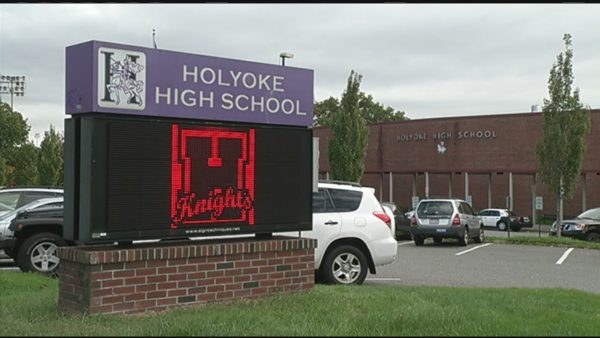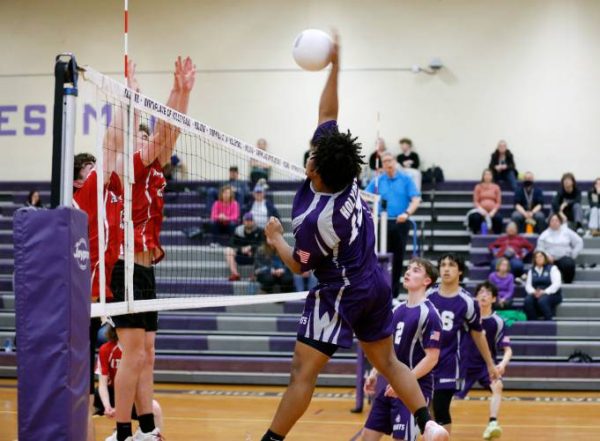Midterm Exemptions: Why Not AP?
Why can’t students in AP classes exempt their AP midterms and finals? Its the question all AP students have been asking, and the question administrators reluctantly answer.
It’s three AM the night before your midterm exam, and the words in your notebook have morphed into what looks like a Jackson Pollack painting. You’ve spent the last week trying to cram an entire semester’s worth of material back into your memory, hoping to retain it for the exam. If only it were another way…
Luckily, there is. HHS students have a healthy relationship with midterm and final exams due in a large part to the Renaissance Program offered to all students. For close to six years, students of all grades have been given the ability to exempt up to two midterm/final exams. To exempt a midterm or final exam, students must have a 3.5 Grade Point Average, or higher, as well as a cumulative class average of a 93 or above in order to exempt that particular class’s exam. That being said, if a student was able to maintain a GPA above a 3.5 and a 93 class average in an Advanced Placement (AP) class, shouldn’t they be allowed to exempt that exam? Apparently not. Since the dawn of the Renaissance Program, a rule has been in place preventing students from exempting exams in AP classes. However, if you talk to any Knight in an AP class or multiple AP classes, those students have a higher class average in their AP classes because of the time and energy they spend keeping their AP grades up.
“If anything, we should be rewarded for keeping such a high average in as rigorous a course as an AP,” said HHS senior, Matthew Walsh, who is currently taking three AP courses. Walsh later said that he didn’t feel students should pay less attention to their grades in classes other than AP classes, but its more often the case that student spends more time studying for their more difficult classes.
That being said, there must be some reason the rule is in place.
One idea as to why HHS would prevent students from exempting AP midterms is that students would not be allowed to exempt the midterm in college. This is true, AP classes are college-level classes given for high school and college credit, and most colleges do not have an exemption policy like Holyoke High School’s policy. However, according to an article in the Boston Globe titled, “Final Exams Are Quietly Vanishing from College”, final and midterm exams are, like the title suggests, becoming obsolete in colleges around America. The colleges that have dismissed the tests reason that the exams put too much stress on students, and do not actually reflect how much the student has learned that semester. The same could be said for why some colleges aren’t requiring SAT and ACT scores to be provided with applications. A lengthy test such as SATs and final/midterm exams do not test the student’s ability to comprehend what was taught that year, but, rather, test the student’s “mental endurance”, and therefore are poor expressions of what the student is capable of. Therefore, if colleges are slowly doing away with midterms and finals themselves, what is stopping the high school from allowing exemption from AP exams?
When asked to explain Holyoke High’s logic behind the rule, AP Physics teacher Ralph Benoit said, “Students are supposed to use their AP midterm as practice for their AP exam”. The AP course’s main goal, even though it is for high school credit, is to count as college credit. In order for a student to receive any college recognition for passing the course, the student must receive a score of 3 or higher, on a 1-5 scale, which is then judged by each individual college on whether or not the course will count as college credit.
Wanting students to practice for their very crucial AP exam is a reasonable explanation as to why teachers would encourage their students to take their AP midterms. However, when taking a midterm in a class as fast-paced and full of critical information as an AP class, trying to study for one, two, or even three AP midterms without much time for preparation, is too much to force on any student. Also, students in AP classes are supposed to be held to a higher standard than students who are only taking standard or honors courses (hence allowing them to take the same classes as a student in college) and therefore should be thought responsible enough to make their own decision on whether they take the midterm as a practice, and risk lowering their class average and GPA, or exempting it and preparing for the AP exam on their own. If nothing else, allowing and trusting students to prepare for the exam on their own is one of the many ways the school should be trying to move students away from dependency on adults to make decisions for them, and better prepare the students for college, where studying for an exam is completely left for the student to do on their own.
Student’s grievances on this subject have been long overlooked. It’s time to make a change and put the responsibility back on the students. After all, high school is only four year, and the rest of life is forever. Let’s prepare our students for the real world, where obsolete assessments are done away with, and people are responsible for their own work quality.












Olivia • Jan 12, 2018 at 12:35 pm
this site is great! I think you students are doing a good job of getting this information out. Let us know how this works out for the students?
keep up the good work